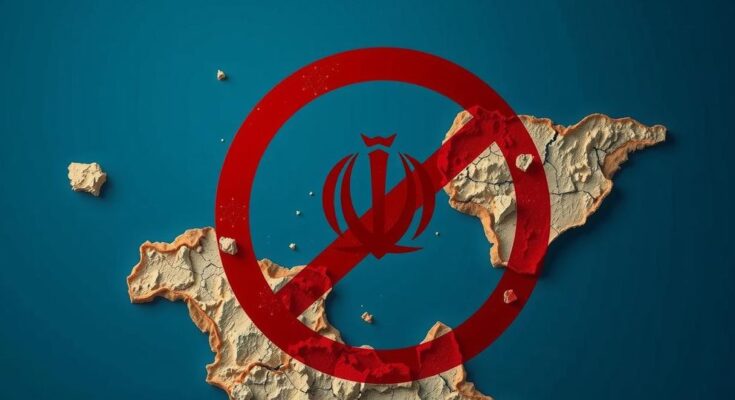Iranian Foreign Minister Abbas Araghchi announced that neighboring countries will not permit their soil or airspace to be used for attacks against Iran, following rising tensions after a missile strike on Israel. Iran warned the United States of its responsibility should Israel retaliate, indicating a dangerous escalation in regional conflicts.
During a press conference held in Kuwait City, Iranian Foreign Minister Abbas Araghchi announced that neighboring countries have confirmed they will not permit their territories to be utilized for any attacks against Iran. This statement comes amid heightened tensions following Iran’s missile strike on Israel, which took place on October 1, in retaliation for the loss of allied leaders from Hamas, Hezbollah, and an Iranian general. Araghchi stated, “All our neighbours have assured us that they won’t allow their soil or airspace to be used against the Islamic Republic of Iran.” His remarks underscore the precarious situation as Israel considers potential military action against Iran amid ongoing conflict with Hamas in Gaza and Hezbollah in Lebanon. Iran has warned that the United States must bear full responsibility in any ensuing conflict that could arise from a possible Israeli attack. The country views statements made by US President Joe Biden regarding Israeli military plans as provocative. Amir Saeid Iravani, Iran’s ambassador to the United Nations, conveyed this sentiment, calling Biden’s remarks alarming and suggesting that they indicate US support for Israeli aggression against Iran. As tensions escalate, Israel, under Prime Minister Benjamin Netanyahu, has expressed intentions to target Iranian military installations while avoiding nuclear and oil facilities. This potential escalation raises questions about the implications for regional security and international relations, particularly concerning the role of the United States and the United Nations in mitigating conflict.
The relationship between Iran and its neighbors has become increasingly strained due to ongoing conflicts involving Israel and militant groups such as Hamas and Hezbollah. Iran’s military actions and retaliatory strikes create a complex geopolitical landscape, which has raised concerns about regional stability. The involvement of external powers, particularly the United States, further complicates the dynamics of this situation. In this context, diplomatic assurances from neighboring states regarding the use of their territories are pivotal to prevent escalation of hostilities.
In conclusion, the assurance from Iran’s neighboring countries not to allow their soil or airspace for attacks against Iran marks a significant diplomatic moment amid rising tensions after Iran’s missile strike on Israel. The involvement of the United States and statements from its president could serve as a catalyst for further conflict. Therefore, the approach of the international community, particularly through diplomatic means, remains crucial to deescalating potential military confrontations in the region.
Original Source: jordantimes.com




